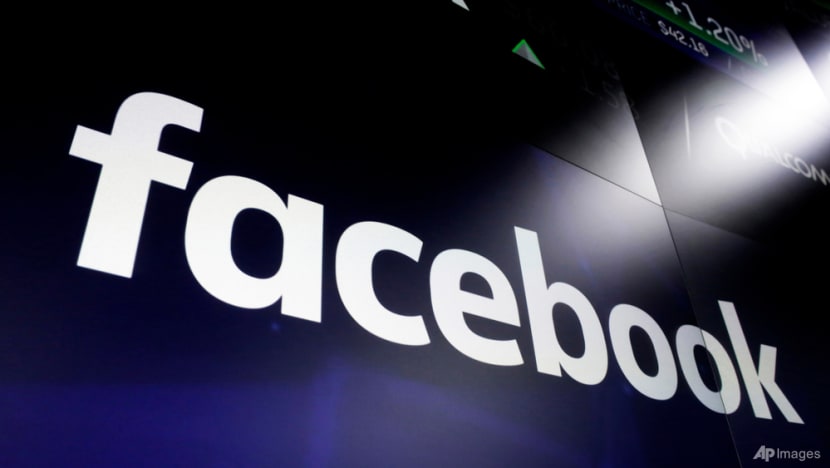Facebook to verify identities of all advertisers amid rise in scams
The assessment period for Carousell's verification measures has been extended for another six months, until Jun 30.

File photo of the logo for Facebook (Photo: AP/Richard Drew)

This audio is generated by an AI tool.
SINGAPORE: Meta plans to verify the identities of all advertisers on Facebook against government-issued records by the end of June, as part of requirements under the Online Criminal Harms Act (OCHA).
This comes after the Ministry of Home Affairs (MHA) noted a 12 per cent increase in the number of scams from Facebook advertisements between June and December 2024.
During this six-month period, MHA allowed Meta to apply the verification measures to the identities of selected advertisers. If the number of scams did not drop significantly, the ministry would tighten its requirements.
Given that Meta was unable to curb the number of scam advertisements, it would be required to roll out verification measures in the coming months.
"MHA notes that Meta intends to verify the identities of all advertisers on Facebook by end-June 2025. We welcome this and will monitor the situation," the ministry said in a media release on Monday (Mar 10).
With the new measures, advertisers will have to verify and disclose the beneficiary and the payer of ads targeting Singapore before running a new ad campaign, Rafael Frankel, Meta's director of public policy in Southeast Asia, said in response to CNA's queries.
"Information about the verified beneficiary and payer will be included on the ad infosheet and in the publicly accessible Ad Library," Dr Frankel said.
Businesses that have already verified themselves with Facebook will not be required to re-verify.
Dr Frankel noted Meta's announcement last October that it would begin testing facial recognition technology as a means to tackle "celeb-bait" ads. This will extend to Singapore, he said.
"We’re also testing this technology as a means for people to verify their identity and regain access to compromised accounts - a frequent vector for scams."
Under a new code of practice for e-commerce services, which came into effect in June last year, Meta and Carousell were required to introduce measures to protect users from scams.
They operate platforms that are deemed at the highest risk of e-commerce scams.
In 2024, Facebook made up 37.4 per cent of all e-commerce scams with 4,368 reported cases, while Carousell represented 17 per cent with 1,987 cases.
FACEBOOK PAGES
Apart from Facebook advertisements, MHA said it had observed "a significant proportion" of e-commerce scams being perpetrated on Facebook Pages. Scammers would create pages under the pretext of advertising the sale of goods and services in order to reach out to their victims.
"MHA is working with Meta to introduce the enhanced verification requirement for Facebook Pages in 2025," it said.
Meta will be allowed to apply the verification requirements only to selected pages for a start.
Similar to its approach to the other Facebook services, the effectiveness of the measures for Facebook Pages will be assessed for a period of time.
"If the scam numbers do not decrease significantly, we may require stronger measures to be implemented, such as requiring Facebook to apply verification requirements to all pages," MHA said.
"We plan to begin testing enhanced verification measures for Facebook Pages in Singapore this year," Dr Frankel told CNA.
FACEBOOK MARKETPLACE
MHA said that the number of reported scams on Facebook Marketplace fell by about 55 per cent over the assessment period.
"Given the significant improvement, MHA will not mandate the enhanced verification requirement for all Marketplace sellers," it said.
The ministry will continue to monitor the situation on Marketplace, where measures cover selected sellers, and may require Meta to verify the identities of more sellers should the situation worsen, it added.
CAROUSELL
The number of reported e-commerce scams on Carousell dropped by about 11 per cent over the six-month assessment period.
While this is "not a significant decrease", it showed a decreasing trend, said MHA, adding that the platform "has demonstrated willingness and proactiveness to work with us on various anti-scam measures".
MHA said it would not mandate enhanced verification requirements for all Carousell sellers "for now".
It will instead extend the assessment period for Carousell's measures by another six months. These include user verification on selected sellers and advertisers.
If the number of scams reported on the platform does not drop "significantly" by the end of June, MHA may require Carousell to verify the identities of all sellers by Oct 1.
MHA said it will continue to waive the requirement on payment protection mechanisms for now to allow the four online services to "focus their resources on their other anti-scam measures, including enhanced verification".
"To be effective in tackling scams, the government and industry stakeholders must work collaboratively," MHA said.
"We thank Meta and Carousell for working with us in this regard, including through technical measures and public education initiatives. We look forward to our continued collaboration."
















